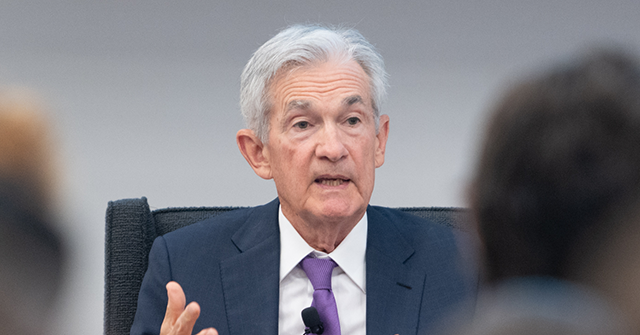In September, the Federal Reserve’s decision to cut interest rates by 50 basis points was criticized as being not only premature but also influenced by political pressures. This action was starkly contradicted by the latest jobs report, which revealed 254,000 new jobs and a drop in unemployment to 4.1 percent, demonstrating that the labor market is robust rather than deteriorating. Moreover, wages have increased by 4 percent year-over-year, indicating that the reasoning behind the Fed’s rate cut was flawed. Political pressure, particularly from Democrats who are aiming for quick economic gains ahead of elections, fueled calls for even deeper cuts. Notable figures, including Senators Elizabeth Warren and John Hickenlooper, argued for a more aggressive 75-basis-point cut, warning of a looming labor market crisis despite the rising strength of the economy.
The decision to cut interest rates was not economically justified but rather a calculated move aimed at enhancing political prospects. While the labor market metrics suggested stability and growth, Democrats pushed for rate cuts, suggesting they were essential to avert an impending collapse. In reality, wage growth was outpacing inflation, and employment was expanding. Critics termed this as political opportunism, positioning the Democrats in a favorable light ahead of elections. The Harris campaign, in particular, appeared eager to frame this rate cut as evidence of their economic competence, hoping to divert attention from ongoing inflationary challenges.
The irony of the Fed’s actions lies in the potential repercussions for American workers. As wage growth begins to surpass inflation, Fed interventions that artificially decrease interest rates could risk reigniting inflation, thereby eroding the purchasing power that workers have recently started to gain. Claims by political leaders that rate cuts would protect working Americans overlooked the reality that these measures could make it harder for individuals to retain the economic improvements they fought to achieve. If inflation reemerges, it will be the working class who suffers, facing rising costs of living without adequate wage adjustments to compensate.
Political motivations surrounding the Fed’s decisions raise concerns about its independence and long-term economic strategies. Prominent Democrats, before the Fed’s rate cut, were already advocating for significant reductions in interest rates, emphasizing short-term economic stimulation over demonstrated economic indicators suggesting caution. Despite inflation moderating, it still remained above the Fed’s target, yet the political agenda seemed more focused on generating quick electoral gains rather than ensuring sustained economic stability. Wall Street’s desires also heavily influenced this narrative, with many critics convinced that previous rate hikes would lead to a recession.
Amid increasing pressure from both political entities and financial markets, the Fed opted for a rate cut, attempting to maintain an image of independence despite indications to the contrary. The timing of the decision, alongside external political discussions—with former President Donald Trump warning against any adjustments prior to elections—further complicated the narrative. Such political interferences only reinforced the perception that the Federal Reserve’s actions could be subordinated to electoral considerations, undermining its credibility and independence.
Ultimately, the Fed’s decision to reduce rates in September was criticized as being motivated more by political dynamics than by real economic need. With evidence suggesting that the economy was not in crisis, many felt a more prudent approach would have involved waiting for clearer economic signals before implementing rate cuts. This instance illustrates the broader implications of political meddling on monetary policy, especially in light of the potential impacts on workers who could be adversely affected by inflation. The underlying message is clear: the agenda should prioritize long-term economic health over short-sighted political gain, ensuring that the working class is not caught in the crossfire of political strategies.

